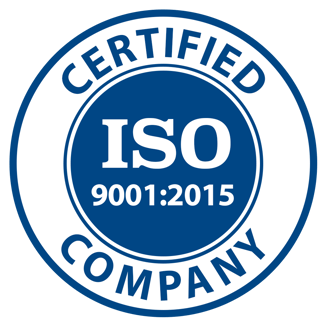If you’re looking for the safest way to choose a logistics provider, finding one with ISO-9001 certification is about as safe as it gets. ISO-9001, the most common standard in the logistics industry, is the quality management standard from the International Organization for Standardization. To discuss what it means for bulk freight shippers, the following is an interview with Bulk Connection’s V.P. of Operations, Andrew Scibelli.
As part of your role at Bulk Connection, you’re a trained ISO auditor, correct?
Yes, I am a trained, certified auditor. We have an external agency that audits us every year – and recertifies us every three years. I lead our involvement with that and also perform internal audits on a regular basis.
Why is ISO-9001 certification such worthwhile thing for a logistics company to have?
The ISO-9001 standard helps to ensure quality and consistency. For us, it gives our customers – both shippers and carriers of bulk freight – peace of mind that they’re dealing with a company that is buttoned up. Our quality program is the foundation of all our operations and guides our processes and procedures.
By following this program, we deliver consistent quality service, prevent errors, embrace continuous improvement, and perform meticulous documentation and vetting. When you work with us, you know that we’re following the strictest quality standards in existence. And we can’t just say we follow them; we’re audited and certified.
What are external auditors looking for during an ISO-9001 audit?
They go through our records, looking at training documents, procedures, risk assessments, management review, our own internal audits, procedure documentation and a host of other items. We need to perform regular surveys among our customers and those results are reviewed.
Auditors will also randomly select loads we’ve handled (anywhere from 15 to 30 during each audit) and review those in detail to make sure we’re acting in accordance with the standards.
But compliance isn’t a once-a-year-audit thing, it’s an everyday thing. There’s no “cramming for a test” when the external audit comes; ISO compliance defines how we operate every day..
They’ll also review corrective actions. Can you tell me a bit about those?
Sure. A corrective action is required when something doesn’t go to plan. Say, a carrier was late to the loading site. Or the driver wasn’t wearing the proper safety equipment. We’ll need to investigate what went wrong and develop a preventive plan for the future. In most cases, the corrective action process will start with our customers because the vast majority of them are also ISO-9001 certified.
The process will start with a service failure report that documents the situation. We’ll ask the carrier to investigate, find the root cause, and determine preventive steps so it doesn’t happen again. We’ll review the carrier’s responses and then complete our own internal corrective action form. We meet with the customer to review all documents and the forms are then logged.
Bulk Connection has been ISO-certified since 1999, can you tell me what led you to pursue certification?
Quite simply, many of the shippers we wanted to work with were ISO-9001-certified and required their vendors to be as well. So, we pursued certification and were one of the first, if not THE first, bulk freight brokerage to attain certification. That was very important for us in terms of building credibility in the marketplace. To this day, it shows prospective partners that we take quality seriously and have put the time and work in to back that up.
How has ISO-9001 been a differentiator since the pandemic?
To be frank, lots of companies in this seller’s market for freight are out there price gouging. Being ISO-certified, the top management of our company has a profound sense of responsibility to run the company ethically. We want to make a profit, of course, but we won’t price gouge. Our profit margin hasn’t increased by more than 0.75% percent in over a decade.
Why should companies seek an ISO-9001 partner for bulk freight transport?
There is no central clearinghouse to vet freight brokers, so the vetting is left up to you as the shipper. Vetting is important as freight brokers can range from very small operations with limited experience to large, reputable companies with decades in the industry. Vetting a 3PL typically involves looking at customer referrals, financial and insurance documentation, and proven product and equipment expertise.
If, on top of this regular vetting, a transportation provider is ISO-9001-certified, it moves the needle way toward the “reputable” end of the spectrum. ISO certification isn’t something you do on a whim. It’s not just a cool icon to display on your company website. It is an extremely lengthy and thorough process that touches every aspect of an operation, requires the involvement of key company personnel, and often involves overhauling policies, procedures, and training practices that may have been in place for years.





